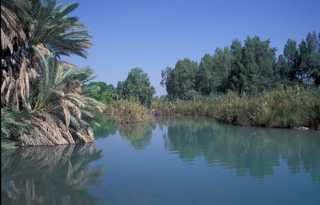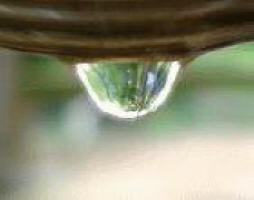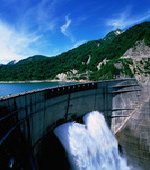 East Jerusalem Residents Suffer From Severe Water Shortages
East Jerusalem Residents Suffer From Severe Water Shortages
Tens of thousands of Israeli Arabs in east Jerusalem are coping with severe water shortages, while official bodies bicker over the reasons.
According to Gihon, the Jerusalem Municipality's water company, the disruptions are caused by illegal tapping into the water system.
"There is a widespread phenomenon of water theft in this area, which we have been warning the water authority about for a very long time.
But residents said that even if there is illegal drilling and pumping, it doesn't account for the overall problem, pointing a finger at Israeli policies.
"All these people are not getting any water because some few people were acting illegally? Why do we have to pay because of them? Would the same collective punishment happen if the residents here were Jewish? I seriously doubt it," Ras Khamis resident Hassan el-Rachim told Xinhua Wednesday.
"Because we're not Jewish, and we are not first-rate citizens but they can do what anything they want," he added.
Some east Jerusalem residents get their water from Gihon, while others get it from the Palestinian National Authority, which also suffers from water shortages.
East Jerusalem was captured and annexed by Jordan in 1948, and then by Israel following the 1967 war.
Nisreen Alyan from the Association of Civil Rights in Israel ( ACRI) sent a letter Monday urging Gihon to find a solution to the resident's predicament.
"This is not the first time for this thing to happen," Alyan told Xinhua. "It's something we deal with a lot. An entire community of innocent people is being denied of one of life's basic ingredients as means of collective punishment.
But, Gihon spokesmen retort, "in the wake of the request by ACRI regarding the problem in the Shoafat refugee camp, it was agreed to hold a meeting with representatives of the association, in order to find creative ways to try to solve the problems. Gihon is continuously and individually dealing with consumers who report all sorts of problems with service, irrespective of their geographic location."
But Alyan contends "the answers provided by Gihon are unacceptable. The disregards for basic needs in human life will not pass."
The 270,000 Arab residents of the area, Muslim and Christian, have Israeli (blue) identity cards and can vote in local elections and are eligible for the same services as Israelis including access to city infrastructure services, like water, health care, and other services.
The shortages mean that usually water supply only runs for two days a week, in one of the hottest months of the year. Citizens are doing everything to gather as much water as possible.
"Why is it my problem if people are stealing water," asked Jamil Sanduqa in an interview with Ha'aretz. "We used to bath our kids once a day, now it's once a week. We barely shower. We're buying bottled water and they have to solve this problem instead of disrupting the lives of so many people."
For El-Rachim, "They are making our lives a living hell. We have Israeli ID cards but we can't get basic needs like water. We' re second-rate citizens if not less and that's outrageous."
| Contact information |
Xinhua
|
|---|---|
| News type | Inbrief |
| File link |
http://www.miftah.org/Display.cfm?DocId=25034&CategoryId=5 |
| Source of information | Miftah.org/ Xinhua |
| Keyword(s) | Water Shortages |
| Subject(s) | DRINKING WATER , DRINKING WATER AND SANITATION : COMMON PROCESSES OF PURIFICATION AND TREATMENT , HEALTH - HYGIENE - PATHOGENIC MICROORGANISM , HYDRAULICS - HYDROLOGY , INFRASTRUCTURES , POLICY-WATER POLICY AND WATER MANAGEMENT , RISKS AND CLIMATOLOGY , WATER DEMAND |
| Geographical coverage | Palestine,Israel, |
| News date | 16/07/2012 |
| Working language(s) | ENGLISH |
 you are not logged in
you are not logged in





